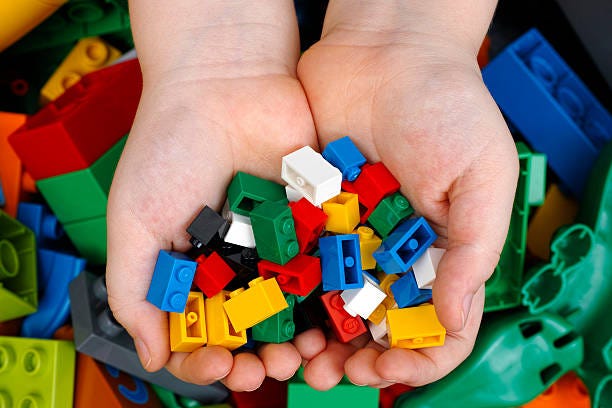Rahela’s Journey in Becoming a Parenting Coach
Rahela Tayyabi, a trauma-informed parenting coach and mom of two boys, began her journey by sharing her parenting experiences and learnings on Instagram. What started as casual posts soon turned into a thriving community of over 200,000 parents. Her passion for gentle and respectful parenting grew as she pursued certifications and applied new insights with her children. Today, she helps parents build stronger, more connected relationships with their kids while navigating challenges like sibling rivalry.
Telling Your Child About a New Sibling
Introducing the idea of a new sibling to a young child requires patience and creativity. Rahela suggests using visual tools such as books, shows like Bluey or Daniel Tiger, or real-life examples of other families with siblings. Since toddlers struggle with abstract concepts of the future, showing them what sibling relationships look like can make the idea more concrete. Involving them in conversations and small activities during pregnancy also helps them feel included.
Supporting Kids to Accept a New Sibling
Not every child reacts positively to the news of a sibling. Some may feel upset or fearful. Rahela emphasizes validating those feelings rather than dismissing them. She shares her personal story of how her elder son struggled to connect with his newborn brother. Simple acts, like giving the elder child a gift "from the baby," can help build excitement and connection. The key is to reassure the child that their emotions are valid and that they still hold a special place in the family.
Giving Attention to the Elder Child with a Newborn
When a newborn arrives, the older child can easily feel left out as parents juggle new responsibilities. Rahela encourages parents to find small but meaningful ways to keep the elder child connected. Instead of sending them away during feedings or baby care, involve them—let them sit nearby, read together, or play while you nurse. These simple moments show the elder child they are still important. Even dedicating just 10 minutes a day of undivided, distraction-free time can strengthen the bond and reassure them that their place in your heart hasn’t changed.
Addressing Elder Child's Regression
Regression in older children, such as wanting to be fed again or reverting to using a bottle, is common when a newborn arrives. Rahela explains that these behaviors are usually attention-seeking rather than signs of lost skills. Instead of resisting or scolding, parents can gently accommodate these requests while reinforcing the child’s abilities. Over time, the child will naturally return to their independent habits once they feel secure.
Managing Sibling Rivalry
Sibling rivalry is inevitable, but how parents respond makes all the difference. Rahela notes that children often push or hit not out of malice but as a way of expressing emotions or experimenting with reactions. Setting boundaries like physically removing the baby from harm while offering safer outlets for expression (e.g., hitting a pillow) can teach children to manage strong emotions without suppressing them.
Handling Sharing Conflicts
Sharing is one of the biggest triggers of sibling conflict. Rahela challenges the common saying "sharing is caring," pointing out that even adults don’t always like to share personal items. Instead of forcing turns with strict timers, she suggests allowing one child to finish before passing a toy to the other. In cases of conflict, parents should act as "sportscasters", describing what’s happening without judgment and guide children toward solutions rather than acting as referees.
Promoting Sibling Bonds
Unstructured play, boredom, and open-ended toys (like Lego or Magna-Tiles) create natural opportunities for siblings to bond. Rahela also recommends board games and collaborative activities. However, she cautions parents against consistently siding with the younger child, as this can build resentment in the elder sibling. Encouraging teamwork and shared decision-making helps siblings build trust and connection over time.
How Do We Stop Comparing Our Kids?
Comparisons between siblings are almost instinctive for parents, but they can be harmful. Rahela explains that each child is unique, with different interests and developmental timelines. Just as adults dislike being compared to siblings or in-laws, children too can feel diminished. Parents should remind themselves that their kids are “different flowers from the same pot.” Observing and honoring each child’s individuality fosters self-esteem and harmony.
How to Manage Time Between All Kids
Time management is crucial in multi-child households. Rahela suggests carving out small pockets of one-on-one time with each child, even if it’s just 10–15 minutes daily. She encourages parents to plan “dates” with each child or alternate who accompanies them on errands to ensure individual attention. Ultimately, it’s not about the quantity of time but the quality of mindful, distraction-free connection.
Conclusion
Raising multiple children comes with its share of challenges—rivalries, regressions, and constant negotiations. But as Rahela emphasizes, the foundation of peaceful sibling relationships lies in the parent-child bond. When children feel secure in their connection with their parents, they’re less likely to compete for attention. With mindful practices, validation of emotions, and intentional moments of connection, families can foster not just coexistence, but genuine sibling love and harmony.





